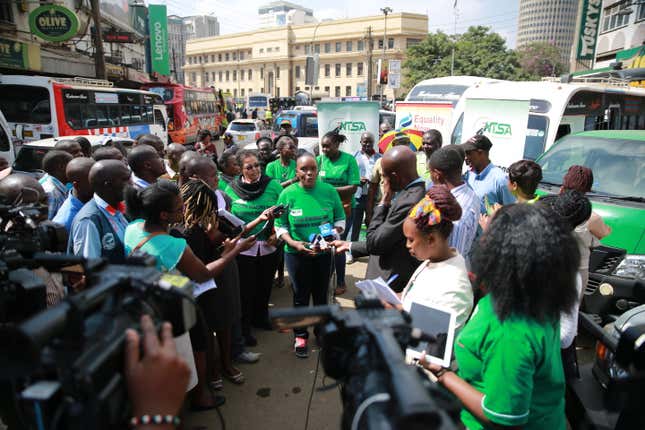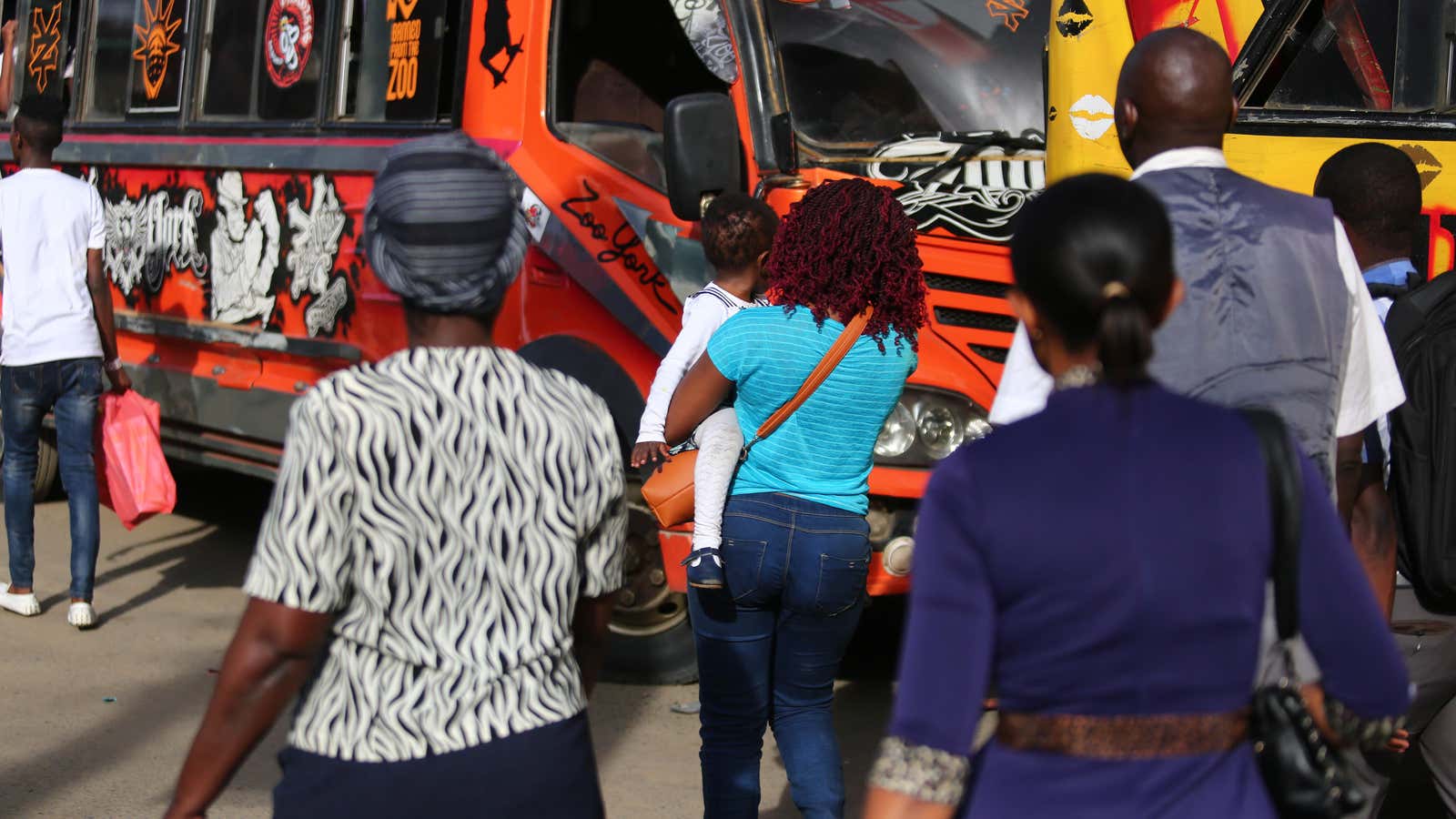Matatus are part of the landscape of Kenyan culture, the soundscape of Kenyan cities: the yellow stripes, the lights, graffiti, loud music, and often horrible driving. This is the means of transport that most Kenyans can afford, and so the means they use most. They are indispensable to most people’s daily commute.
While some neighborhoods take immense pride in their matatus, be it for their music, graffiti, or even WiFi connectivity, there is a dark side to the matatu industry. Too often, these spaces, designed for the public, have been horribly unsafe for women. In 2014, a lady was stripped by matatu conductors for being “indecently dressed”. This inspired people in other towns to strip women in a series of ‘copycat crimes’. Following this, Equality Now, an international women’s rights organization, together with other organizations, began the #MyDressMyChoice campaign, reasserting women’s right to wear whatever they want to, and also protesting violence against women.
Unfortunately, sexual assault and harassment in matatus still goes on. Anita Nderu, a TV presenter, came forward recently to speak about how she was groped in a matatu. When she reached out to the conductor he said there was nothing he could do about it. On November 8, two passengers were raped in separate incidents by a matatu driver.
Equality Now has, again, given a powerful response. They have partnered with Kenya’s National Transport and Safety Authority (NTSA) to launch a campaign to end sexual and gender based violence in matatus. The campaign is #MyMatatuStory, and aims to educate and sensitize conductors and drivers on providing safe spaces for their passengers. Passengers and matatu crew can prevent and report cases of sexual harassment and assault to NTSA through a complaints hotline. Eventually, they envision having a gender desk at NTSA dedicated to sexual harassment/assault complaints. Matatus taking part in the campaign have a ‘Nganya Safe’ sticker (‘safe matatu’).
How this is supposed to work is whenever a person is sexually harassed or assaulted in a matatu, they file a complaint through the hotline. They give details of the matatu’s number plate, route registration (sacco) and of the incident, and NTSA follows up. If a matatu is found not to have provided a safe enough space, say by the driver’s/conductor’s attitude or complicity, then not only will that matatu not operate, but its whole sacco will be deregistered.

For a matatu to be allowed to operate, their owners need to be part of a cooperative society (sacco), and the sacco is usually assigned to a particular route, and has around several members. Each route will have around 2-3 saccos operating on it. The strategy is to make sexual harassment—and its tolerance—expensive. Considering the amount of money matatus make, having not one but all matatus in a sacco off the roads will definitely make matatu owners sit up and take note.
The aim of the hotline is not necessarily prosecution of perpetrators, as Judy Gitau, a women’s rights expert from Equality Now notes, even though prosecution can and must take place following from the report as a ‘by-product’ of sorts, but it is to add an additional layer of protection for sexual harassment or assault victims.
The criminal litigation process is distinct from this one, but this just protects victims more. This process targets those responsible for keeping public spaces safe. The drivers and conductors of these matatus will not be held criminally responsible, but they should be held socially responsible for any complicity. “Everybody should understand that it’s their right to demand a safe space, do not be quiet; you are not the one on the wrong,” Gitau concludes.
